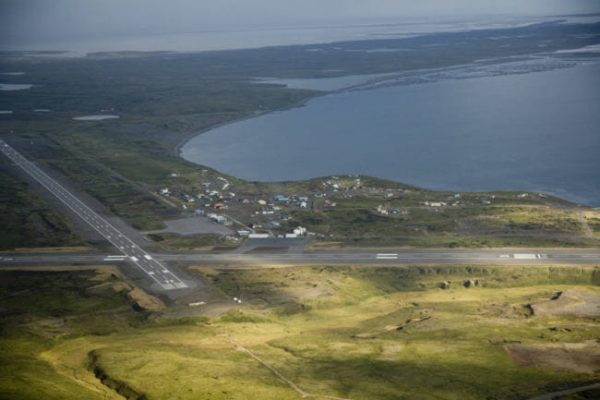
President Donald Trump’s administration Friday appealed a court ruling that blocked plans to build a long-sought road through the Izembek National Wildlife Refuge.
Attorneys for U.S. Interior Secretary David Bernhardt filed the appeal of a March decision by U.S. District Court Judge Sharon Gleason that set back the administration’s plans for a 12-mile road through the refuge on the Alaska Peninsula.
An Interior Department spokeswoman, Molly Block, declined to comment.
Residents of the fishing village of King Cove, which is only accessible by boat and small plane, have pushed for decades for permission to build the road to the nearby village of Cold Bay and its jet runway.
Bad weather sometimes makes air and boat travel impossible to and from King Cove. And residents, with political support from Alaska’s elected officials, argue that the road to Cold Bay would make it easier for them to be evacuated during medical emergencies.
Environmental groups have opposed the road, arguing that winter storms and snow would make it no more reliable for King Cove than small planes or boats. They also say it would set a bad precedent to build the project inside a refuge.
Environmental groups sued the Trump administration last year over a land exchange between the federal government and an Alaska Native corporation meant to facilitate the road’s construction.
Gleason invalidated the exchange in a March ruling, saying the Trump administration violated the Administrative Procedure Act by failing to justify its change in policy from the Obama administration.
The case now moves to the U.S. Court of Appeals for the Ninth Circuit.




